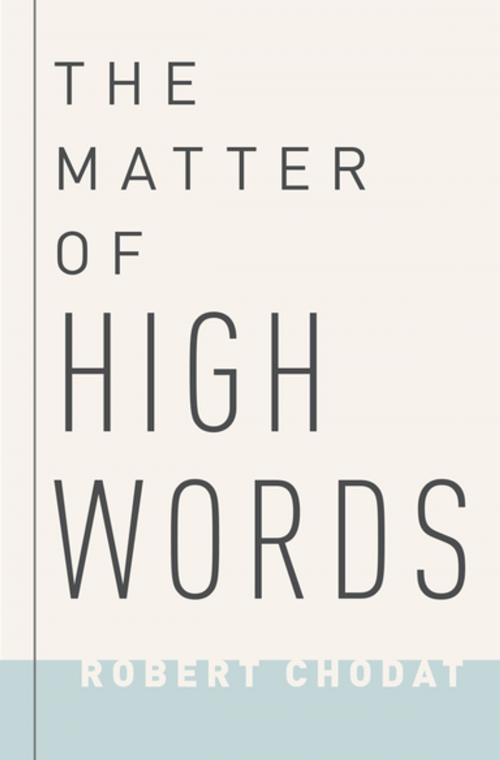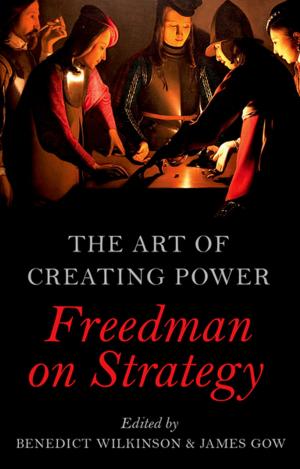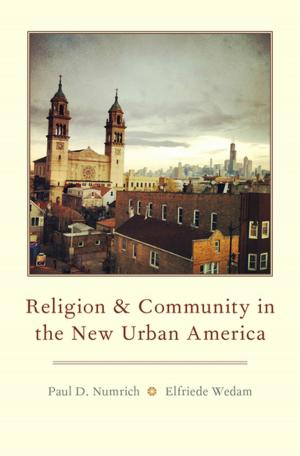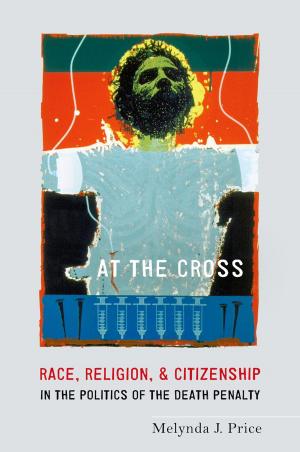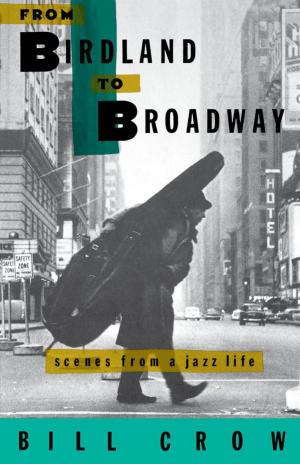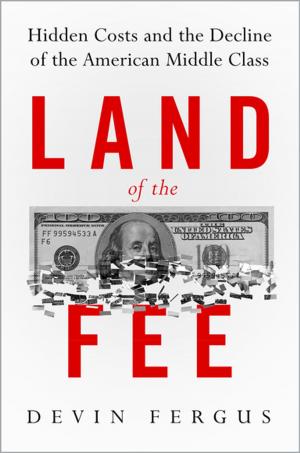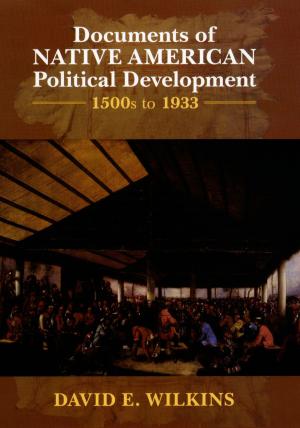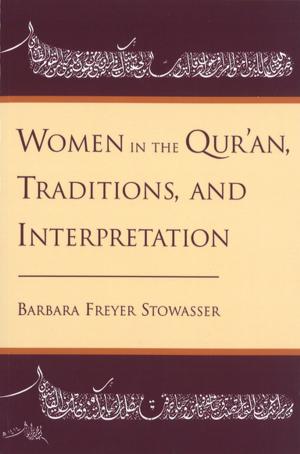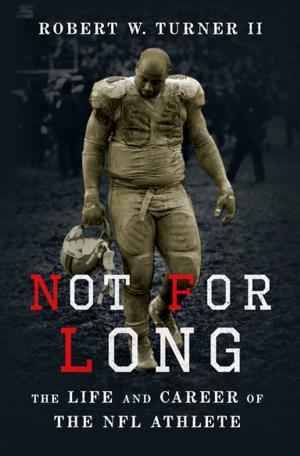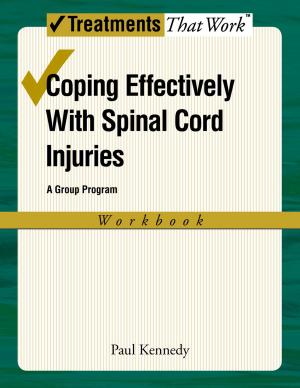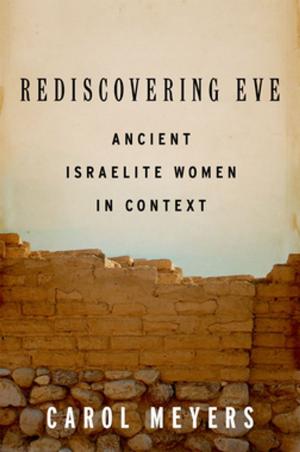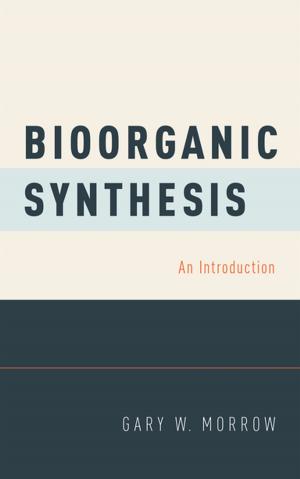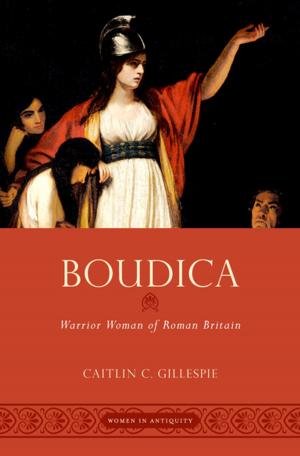The Matter of High Words
Naturalism, Normativity, and the Postwar Sage
Fiction & Literature, Literary Theory & Criticism, Nonfiction, Religion & Spirituality, Philosophy| Author: | Robert Chodat | ISBN: | 9780190682170 |
| Publisher: | Oxford University Press | Publication: | August 18, 2017 |
| Imprint: | Oxford University Press | Language: | English |
| Author: | Robert Chodat |
| ISBN: | 9780190682170 |
| Publisher: | Oxford University Press |
| Publication: | August 18, 2017 |
| Imprint: | Oxford University Press |
| Language: | English |
In a world of matter, how can we express what matters? When the explanations of the natural sciences become powerfully precise and authoritative, what is the status of our highest words, the languages that articulate our norms and orient our lives? The Matter of High Words examines a constellation of American writers who in the decades since World War II have posed these questions in distinctive ways. Walker Percy, Marilynne Robinson, Ralph Ellison, Stanley Cavell, and David Foster Wallace are all self-consciously post-WWII authors, attuned to the fragmentation and skepticism that have defined so much of the literary and critical culture of the last century and more. Yet they also attempt to reach back to older forms of thought and writing that are often thought to have dried up-the traditions of prophecy, of wisdom literature, of the sage. Working within this dual inheritance, these authors are drawn equally to both art and argument, "showing" and "telling," shifting continually between narrative and discursive genres. In their essays they act as moralists, promoting the broad, abstract concepts that might inspire action in the face of naturalistic reduction: community, family, courage, fraternity, marriage, friendship, temperance, judgment. In their narratives, they offer particular lives in particular settings, thick descriptions that give flesh to such high words. Rarely do these movements between genres generate a tidy equilibrium; where their essays speak of cooperation and redemption, their narratives display alienation, loss, and failure. But in pursuing such risky, unorthodox strategies, these postwar sages are not only able to challenge some of the dominant naturalistic theories of the last several decades: cognitive science, neo-Darwinian theory, social science, the fact-value divide in analytic philosophy. Through five chapters of detailed analysis and close reading, Chodat explores the question of whether vocabularies of ought and ought-not can still emerge today, and how these concepts might be embodied, and whether such ideas might be found in things.
In a world of matter, how can we express what matters? When the explanations of the natural sciences become powerfully precise and authoritative, what is the status of our highest words, the languages that articulate our norms and orient our lives? The Matter of High Words examines a constellation of American writers who in the decades since World War II have posed these questions in distinctive ways. Walker Percy, Marilynne Robinson, Ralph Ellison, Stanley Cavell, and David Foster Wallace are all self-consciously post-WWII authors, attuned to the fragmentation and skepticism that have defined so much of the literary and critical culture of the last century and more. Yet they also attempt to reach back to older forms of thought and writing that are often thought to have dried up-the traditions of prophecy, of wisdom literature, of the sage. Working within this dual inheritance, these authors are drawn equally to both art and argument, "showing" and "telling," shifting continually between narrative and discursive genres. In their essays they act as moralists, promoting the broad, abstract concepts that might inspire action in the face of naturalistic reduction: community, family, courage, fraternity, marriage, friendship, temperance, judgment. In their narratives, they offer particular lives in particular settings, thick descriptions that give flesh to such high words. Rarely do these movements between genres generate a tidy equilibrium; where their essays speak of cooperation and redemption, their narratives display alienation, loss, and failure. But in pursuing such risky, unorthodox strategies, these postwar sages are not only able to challenge some of the dominant naturalistic theories of the last several decades: cognitive science, neo-Darwinian theory, social science, the fact-value divide in analytic philosophy. Through five chapters of detailed analysis and close reading, Chodat explores the question of whether vocabularies of ought and ought-not can still emerge today, and how these concepts might be embodied, and whether such ideas might be found in things.
